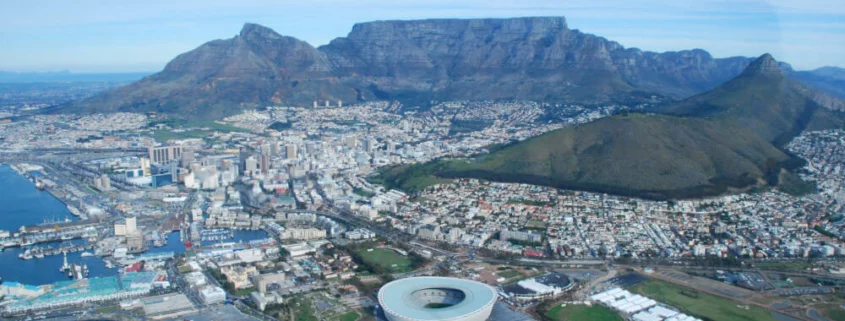In the Film Industry, Cape Town Remains Open for Business
We are pleased to inform you that Cape Town and the Western Cape are now open for business and eager to welcome you to our beautiful city and province. During this challenging time, tourism is more crucial than ever if we are to keep our economy growing and creating jobs.
This is quite crucial. The international news coverage of the drought and the imminent danger of “Day Zero” has caused concern among overseas tourists. We’ve been getting worrisome phone calls from people in the tourism industry because vacationers are debating whether or not to go to Cape Town right now, or even plan trips there in the future.
One of the principal concerns expressed by prospective visitors considering a trip to Cape Town, and echoed by a lot of local residents, is that their presence here may exacerbate the region’s current water issue. According to our knowledge, this is not only wrong, but also the precise opposite. This already challenging situation would be exacerbated if you avoided visiting Cape Town and the Western Cape at this time.
As a result of this,
Even at their peak, international tourists add only approximately 1% more to the total population of the Western Cape province. These visitors spend only a few days in Cape Town before travelling on to other parts of the province and then further north to see sights such as the Kruger National Park. In recent years, a large number of hotel chains have taken the initiative to reduce their water consumption dramatically.
To ensure that each visitor “saves like a local,” the tourism industry has led efforts to limit the quantity of water consumed by tourists. Tsogo Sun, the Cape’s largest hotel company, has successfully decreased its overall water consumption by 40%.
Despite a minor growth in population, tourism was responsible for the establishment of 206 000 direct jobs, 55 763 indirect jobs, and 56 243 induced jobs. As a result, tourism is responsible for the preservation of more than 300,000 jobs in the Western Cape.
As a direct result of these tourists’ spending, our economy increased by R38 billion in 2017. In the first half of 2017, visitors spent a total of R9.9 billion in the Western Cape, according to data from the Western Cape Tourism Board. This represents an 8.8% rise. Tourism remains a substantial driver of growth in our province’s economy, even when the wider economy is falling, and its rate of expansion outpaces that of any other industry in the country.
Tourism’s economic growth-promoting impacts benefit small towns and rural areas in the Western Cape. According to Wesgro study, thirty-six out of thirty-six local tourism offices interviewed outside of Cape Town reported an increase in the number of tourists who visited their areas in December 2017. There are still regions of the Western Cape that are less affected by the drought, and these are the areas that need tourism the most in order to see economic growth and the creation of new jobs.
The agriculture industry has been heavily struck by the drought’s disastrous impacts since the beginning of last year. Thousands upon thousands of jobs have already been lost. Tourism, particularly in more populous cities and towns, can assist share the weight of this impact. We will be able to sustain growth in the Cape area if we promote tourism during this time of year and draw attention to the numerous attractions distributed across our gorgeous province.
The existence of events that drive tourists to Cape Town and many other areas throughout the Western Cape contributes to this economic impact even more. For example, the Cape Town Cycle Tour is responsible for a half-billion-rand contribution to the Cape’s economy. Such activities may continue to be useful if they reach water neutrality in the same manner that the Cycle Tour has. Wesgro offered financial assistance to more than 30 events taking place outside of Cape Town during the most recent fiscal year (2016/2017).
As a result, an additional 150,000 tourists visited these places, resulting in the formation of 1,600 temporary jobs. During the same year, the Cape Town and Western Cape Convention Bureau was successful in receiving 33 bids for conferences, meetings, incentives, and exhibitions, resulting in an R500 million economic gain.
The domino effect would affect the entire country of South Africa. Cape Town and the surrounding areas are the “crown jewel” of South Africa’s tourism offering, and if it is taken from the list of potential destinations, South Africa may also be removed from the list. Even if they start their journey in Cape Town, many tourists continue on to see the many other breathtaking sights that our country has to offer.
“We’ve worked hard to build our tourism destination into the award winning sector it is today: Cape Town has won the Telegraph Best City award for five consecutive years and is routinely voted as a top tourist destination in other readers’ choice polls,” said Alan Winde, the Western Cape’s Minister of Economic Opportunities. Our airport is frequently recognised as the best in Africa. Our guests vote on these polls, and the results reflect the amazing experiences they have had while visiting our establishment.
We work hard to maintain this reputation and ensure that everyone who visits our beaches has nothing but positive recollections to share with others about their time here. We encourage travellers to put Cape Town on their bucket list as soon as possible, but we also ask that they be mindful of their water consumption while here. Water conservation is directly tied to job conservation in Cape Town.
Wesgro CEO Tim Harris claimed that “the numbers speak for themselves.” Even while tourists make up a minor portion of our province’s population, they contribute significantly to its economy. They retain people in their homes and employment, and they keep the economy growing even during economic downturns. We have the wonderful fortune to live in what is widely regarded as the most beautiful region on the planet, and it is now more vital than ever to emphasise this fact.
During this time, we highly encourage people to provide a warm welcome to tourists, since their spending will help our economy grow. Furthermore, we want to make it obvious to tourists that they are welcome here, but we ask that you keep in mind the extreme drought we are suffering and do what you can to help us conserve water. We will be able to avoid Day Zero, keep our economy stable, and continue to sustain and create jobs throughout the Cape and South Africa if we continue to collaborate in this manner.



